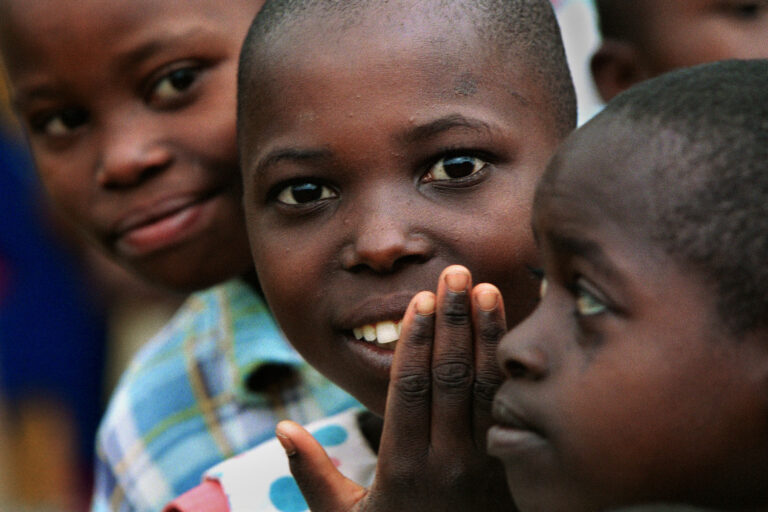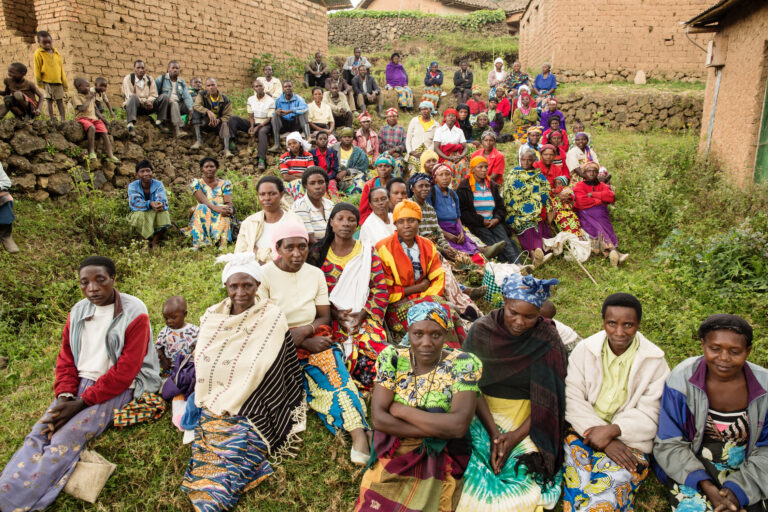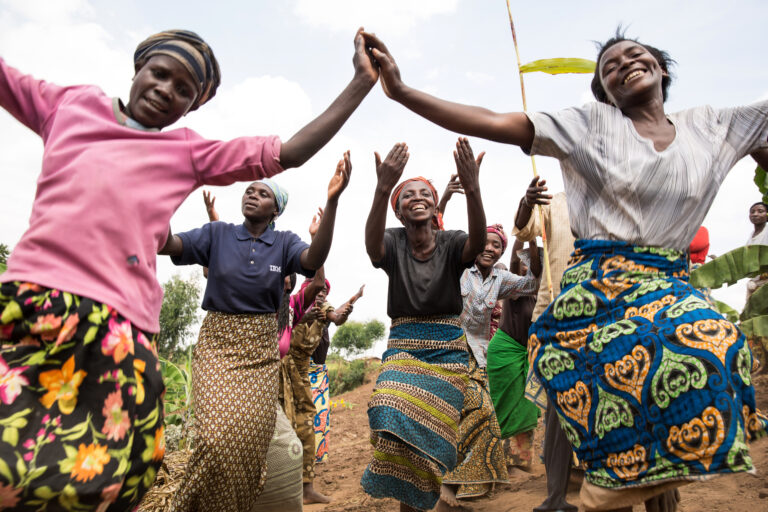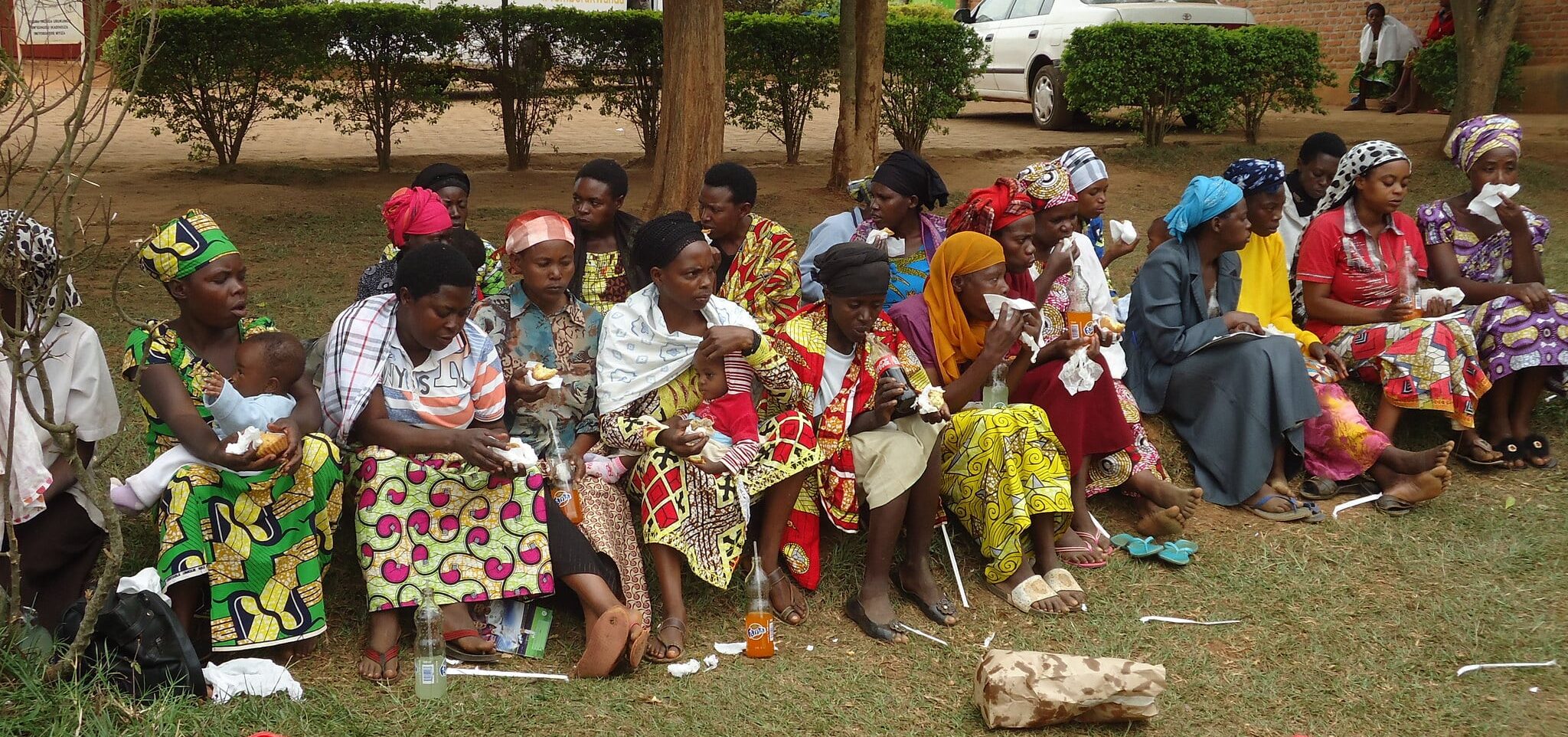
Rwanda : sortir des familles de l’extrême pauvreté, et promouvoir l’accès à l’éducation, la santé et la sécurité alimentaire
Depuis 1995, FXB œuvre activement pour le développement durable et l’amélioration des conditions de vie des communautés les plus vulnérables au Rwanda, où elle est enregistrée en tant qu’organisation non gouvernementale locale.
Contexte
Le Rwanda reste très marqué par le génocide contre les Tutsis de 1994, durant lequel près d’un million de personnes ont été massacrées. Le Front Patriotique Rwandais, a progressivement rétabli l’ordre et la sécurité. Il est un des rares pays à avoir été en mesure d’atteindre la plupart des objectifs du Millénaire pour le développement de l’ONU. Des progrès ont été ainsi réalisés en matière de réduction du taux de pauvreté, d’éducation ou de prévalence du VIH.
Malgré ces succès, le Rwanda est encore un pays très pauvre, qui fait face à d’importants défis en termes de développement. La malnutrition chronique, le mauvais état des infrastructures, le développement de la petite enfance, la mortalité infantile ou la qualité de l’éducation nécessitent une attention soutenue.
Notre action au Rwanda
1. Lutter contre les causes multidimensionnelles de la pauvreté : 12 projets de développement économique et communautaire VillageFXB.
Le modèle VillageFXB est mis en œuvre dans le district de Nyarugenge à Kigali et les districts de Kamonyi, Gisagara et Nyaruguru dans la province du Sud.
En 2025, ce sont ainsi plus de 8 500 adultes et enfants qui reçoivent un soutien dégressif sur trois ans : le temps nécessaire pour transiter d’une situation de pauvreté extrême à une autonomie économique et sociale durable.
Les familles, après avoir suivi des formations en finances et en gestion de projet, reçoivent un capital de départ pour créer des activités génératrices de revenus (microentreprises) et participent activement à des Associations Villageoises d’Épargne et de Crédit (AVEC). Elles bénéficient également d’une aide alimentaire au début du projet, leur permettant de retrouver un état de santé satisfaisant. Cela leur donne l’énergie nécessaire pour s’investir pleinement dans leurs activités économiques, tandis que leurs enfants peuvent mieux poursuivre leur scolarité.
Tout au long des trois années, un accompagnement global est assuré : soutien à la scolarisation et formation professionnelle des enfants et des jeunes, accès à des soins de santé adéquats et amélioration de leurs conditions de logement et des infrastructures sanitaires. Elles ont également l’opportunité d’acquérir des compétences clés en matière de santé et de questions sociales, favorisant ainsi leur développement global et garantissant la pérennité des impacts du projet sur leur qualité de vie.
FXB intègre aussi la résilience et l’adaptation aux impacts du changement climatique dans ses activités, en veillant à préparer les communautés marginalisées à faire face aux défis environnementaux qui les affectent de manière disproportionnée.
L’égalité entre les femmes et les hommes n’est pas seulement un droit humain fondamental, c’est aussi une condition de possibilité d’un monde prospère et durable. Ainsi, une attention particulière est portée à l’autonomisation économique des femmes et à la promotion de leur leadership. Parce que les femmes jouent un rôle clé dans le développement de leurs communautés, FXB met en place des activités spécifiques pour renforcer leurs compétences, favoriser leur accès à des opportunités économiques durables et valoriser leur rôle en tant qu’actrices de changement, notamment en encourageant leur participation active à la prise de décision au sein de leurs familles et de leurs communautés. Il s’agit aussi de sensibiliser les communautés aux violences domestiques et sexuelles et à l’égalité des genres.
Par ailleurs, pour étendre son impact dans ces provinces, FXB met graduellement en place des groupes AVEC, qui bénéficient à 2 800 familles (14 000 personnes) particulièrement démunies, afin de renforcer leur résilience aux chocs socio-économiques et améliorer leur accès aux services de base.
2. Promouvoir le développement de la petite enfant : le projet Sugira Muryango
Son objectif est de former des milliers de parents aux étapes essentielles du développement de la petite enfance à travers 12 modules interactifs répartis sur plusieurs mois. Ils couvrent des thèmes variés tels que la santé, la nutrition, l’hygiène, la résolution des conflits familiaux, les violences entre partenaires, la communication au sein de la famille, ainsi que l’importance du rôle et de l’implication des pères dans l’éducation et le bien-être de leurs enfants. Des alternatives aux punitions sévères sont également proposées.
Des évaluations intermédiaires très encourageantes ont révélé que ces interventions ont renforcé la communication, encouragé des interactions bienveillantes entre parents et enfants, et favorisé des relations familiales harmonieuses, réduisant ainsi les conflits et les pratiques disciplinaires violentes.
3. Réduire les nouvelles infections et réduire l’incidence du VIH/Sida
Lancé en 2012 (IGIRE-Turengere Abana), ce projet vise à soutenir la scolarisation primaire et secondaire ainsi que la formation professionnelle des orphelins et enfants vulnérables issus de familles touchées par le VIH/sida. Il encourage également leur autonomisation économique en intégrant les familles à des groupes AVEC et en développant des activités génératrices de revenus.
La composante DREAMS (Determined, Resilient, Empowered, AIDS-free, Mentored and Safe lives) du projet se concentre sur la prévention des nouvelles infections au VIH chez les filles, les adolescentes et les jeunes femmes et sur le renforcement de leurs capacités scolaires, économiques et sociales.
Par ailleurs, FXB Rwanda met en œuvre un programme du Fonds Mondial visant à réduire les nouvelles infections par le VIH parmi les populations clés dans les districts de Kamonyi, Gakenke et Musanze. Ce projet cible les travailleuses du sexe, les hommes ayant des relations sexuelles avec d’autres hommes, les personnes transgenres et les consommateurs de drogues injectables. En plus de fournir un accès aux services de dépistage et de prévention, FXB Rwanda renforce leurs connaissances sur le VIH, leurs droits et les protocoles de traitement. Des campagnes de sensibilisation sont ainsi menées pour réduire la stigmatisation et favoriser leur inclusion sociale. Le projet soutient également l’autonomisation économique des bénéficiaires à travers des formations à la génération de revenus.
En combinant accès aux soins, sensibilisation et autonomie financière, FXB Rwanda contribue activement à la lutte contre le VIH/Sida au Rwanda.
4. Accès à la nutrition et à la santé
Le projet FOSTERING – Production alimentaire durable, mené dans les districts de Nyabihu et Gakenke, vise à promouvoir une agriculture durable au service des marchés locaux. Il accompagne 30 coopératives spécialisées dans la culture des ananas, des fruits de la passion et des patates douces.
L’initiative met en avant la valeur ajoutée de ces cultures tout en renforçant la rentabilité des coopératives. Elle encourage une agriculture intelligente et résiliente face aux changements climatiques et favorise l’adoption des meilleures pratiques de gestion post-récolte, garantissant ainsi une production plus efficace et durable.
Par ailleurs, FXB pilote un projet – POSE : Entreprise Sociale de produits Phytosanitaires, visant à développer la recherche, la culture et la production de produits médicinaux à base de plantes, destinés à la consommation locale et régionale. Les premiers produits sont en cours de certification. La production des plantes est réalisée localement, avec des pépinières et la distribution de plantules aux participants des projets VillageFXB.
Notre impact au Rwanda
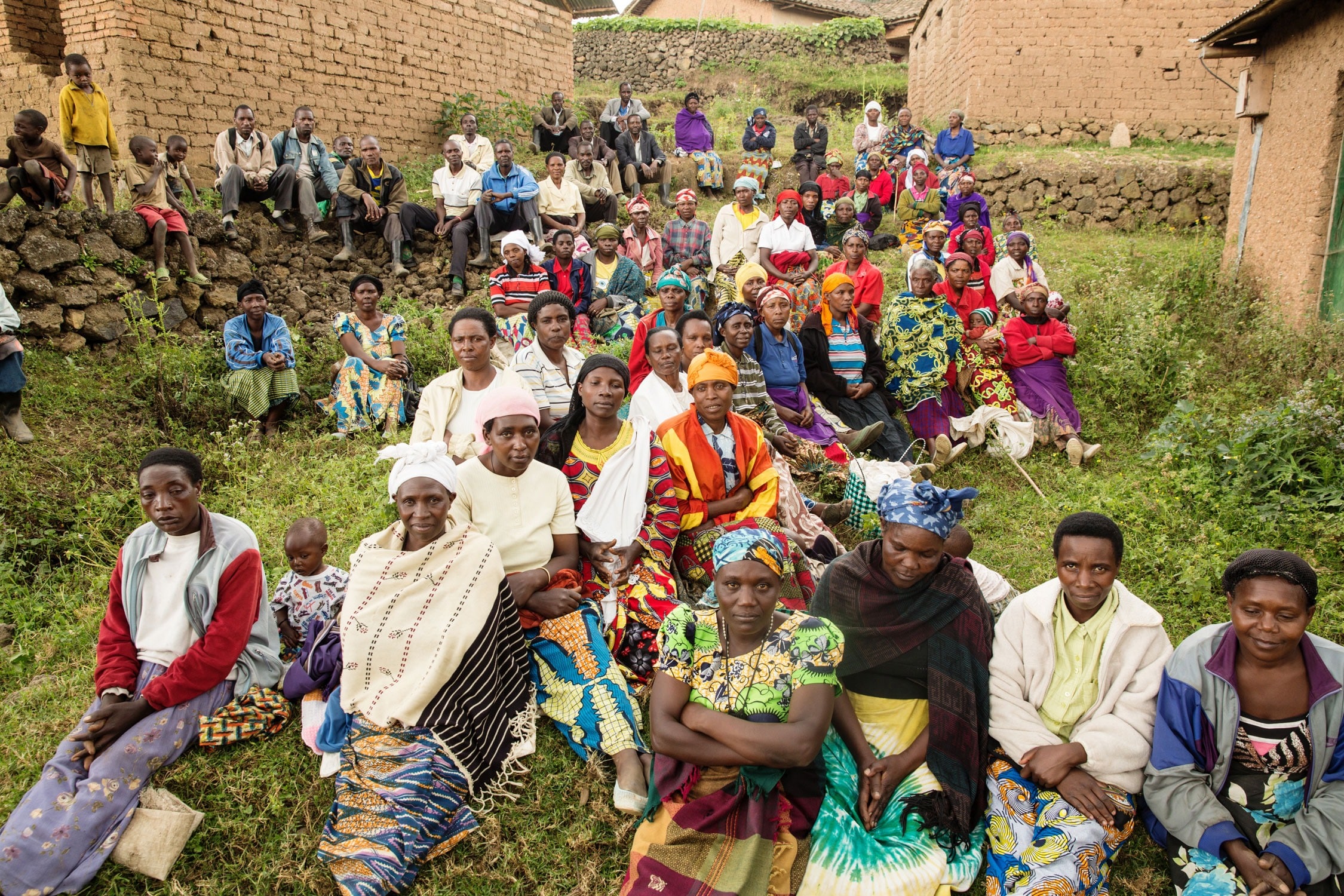
ont permis à des milliers de familles de sortir de l’extrême pauvreté, de protéger et d'élever leurs enfants ainsi que les orphelins de la communauté élargie.
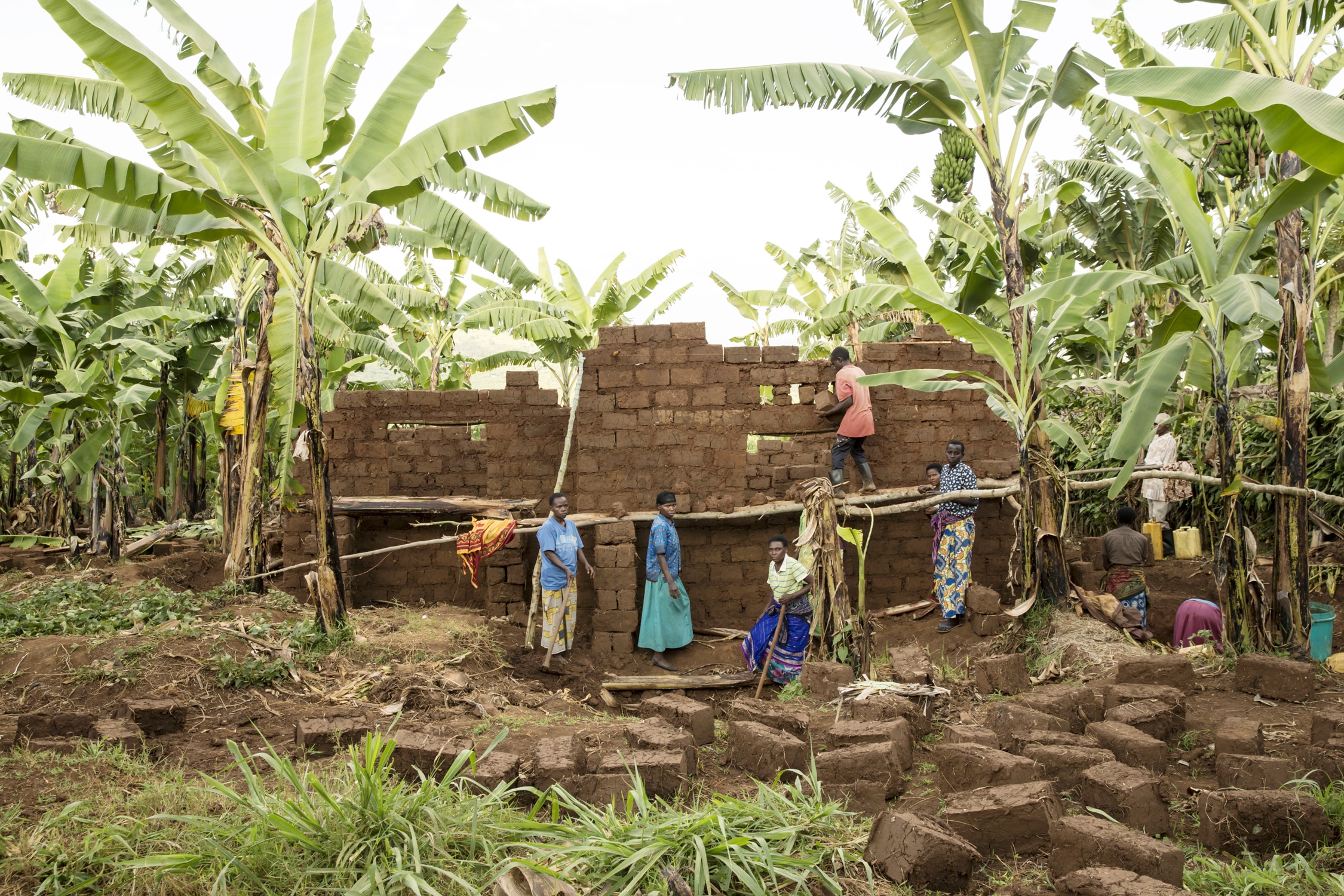
ont bénéficié de la présence de FXB dans leurs communautés à travers l’ensemble des projets entrepris depuis 1995.
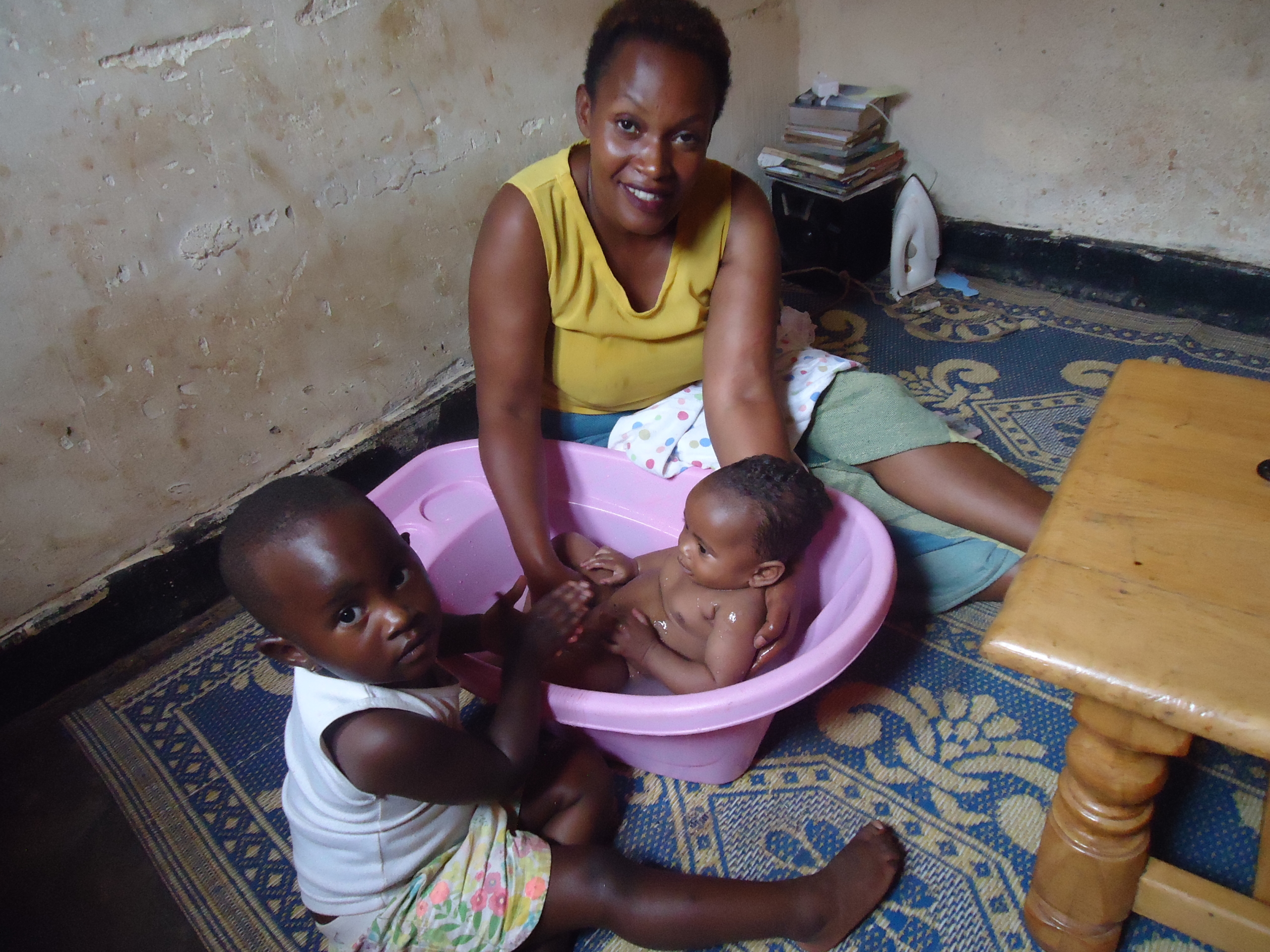
touchées de malnutrition modérée et aiguë ont renforcé leur résilience grâce à un projet de lutte multisectorielle contre la malnutrition qui s’est achevé en 2024.
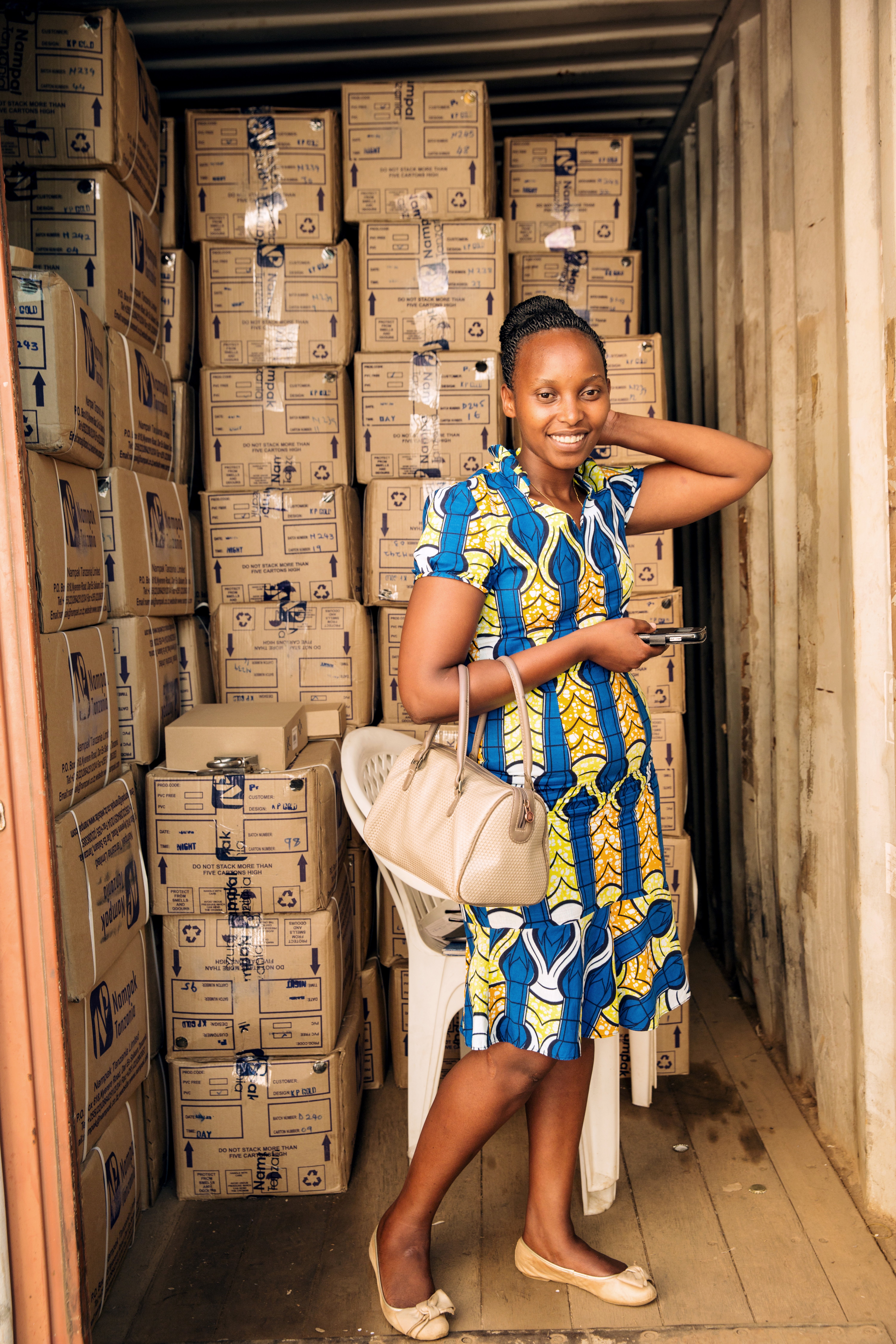
Découvrez le documentaire « Chronique de Succès »
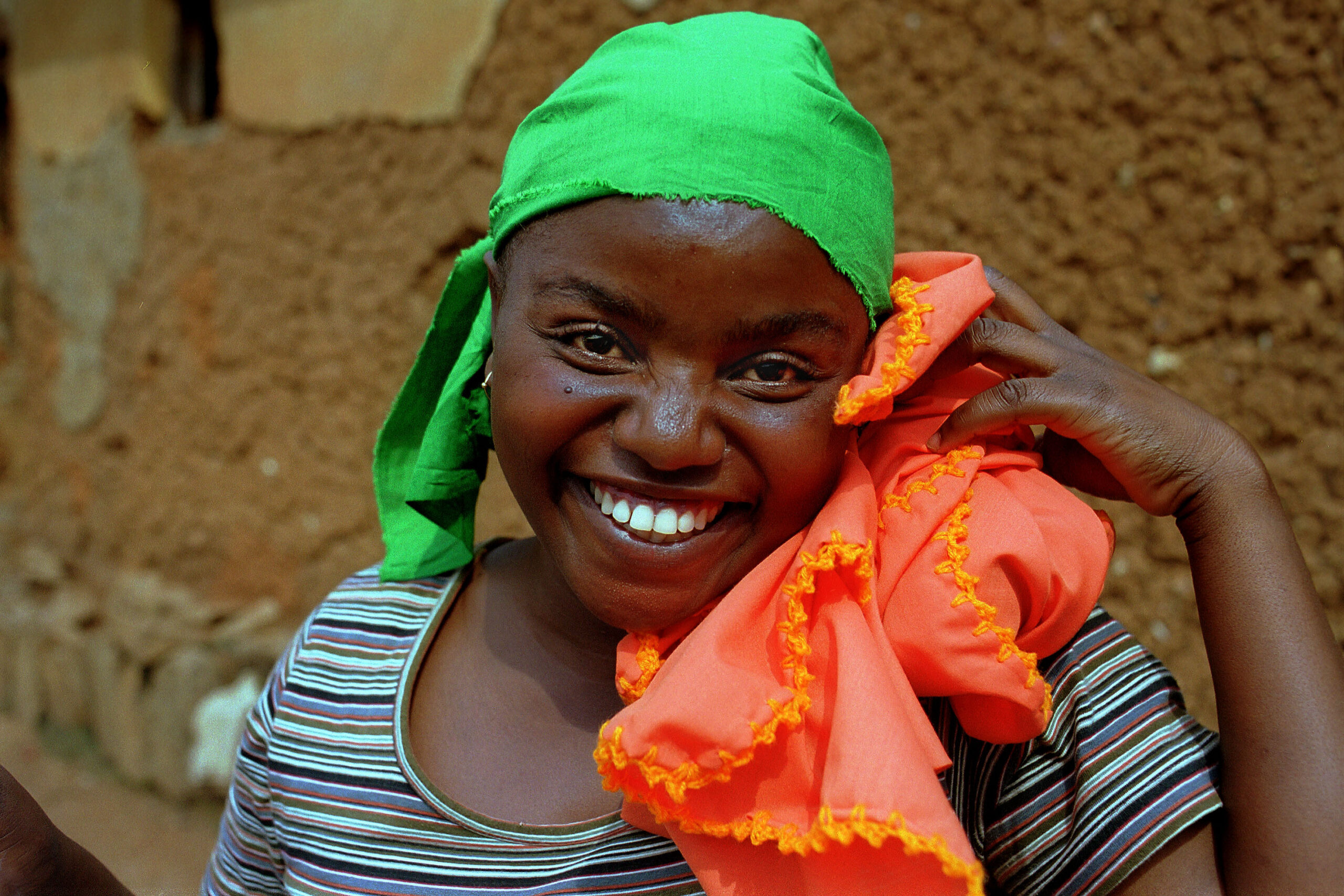
Parcours de vie
Betty, future professeure des écoles
“Avant de rejoindre un projet VillageFXB, nous vivions dans une grande misère. J’étais constamment stressée à l’idée d’être exclue de l’école parce que mes parents n’avaient pas les moyens de payer les frais. J’étais convaincue que l’éducation était ma seule chance de briser définitivement le cycle de pauvreté. Avec le soutien de FXB, j’ai surmonté tous les obstacles et obtenu une bourse universitaire pour devenir professeure des écoles. Je suis déterminée à exceller dans mes études et rêve d’aider d’autres enfants vulnérables à changer leur vie, comme j’ai pu le faire”.
En 2021, les parents de Betty ont intégré un groupe de soutien, d’épargne et de crédit, où ils ont acquis des compétences techniques et financières. Ils ont ensuite reçu un capital pour lancer une activité commerciale, qu’ils ont diversifiée en se lançant dans la transformation de poissons. Les revenus générés depuis la fin du projet leur ont aussi permis d’acquérir une maison et des terres agricoles.
“Si nous n’avions pas été sélectionnés pour rejoindre le projet VillageFXB, nous serions toujours à la rue parce que nous n’avions pas les moyens de payer le loyer et nos autres besoins de base. Aujourd’hui, nous mangeons trois fois par jour, les enfants vont à l’école et nous pouvons payer l’assurance maladie, ce qui était un rêve inatteignable il y a 7 ans encore”. Relève Jeanne, la mère de Betty.

